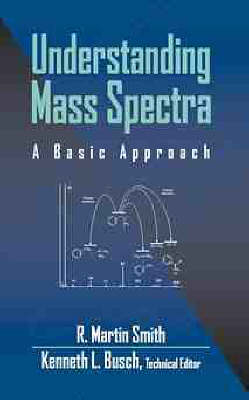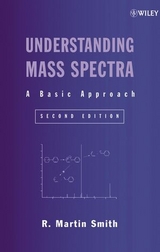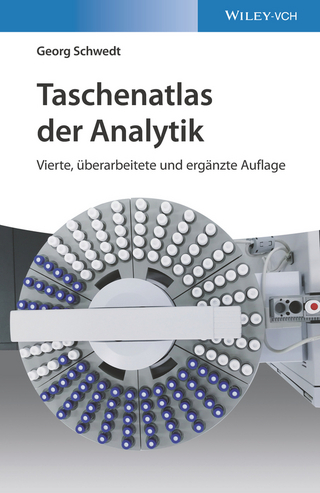
Understanding Mass Spectra
A Basic Approach
Seiten
1998
John Wiley & Sons Inc (Verlag)
978-0-471-29704-8 (ISBN)
John Wiley & Sons Inc (Verlag)
978-0-471-29704-8 (ISBN)
- Titel ist leider vergriffen;
keine Neuauflage - Artikel merken
Zu diesem Artikel existiert eine Nachauflage
Offering an overview of theory and instrumentation, this text explores mass spectra from the context of unifying concepts from organic and physical chemistry. It contains: mathematical explanations; real-life problems and examples; an interpretation; answers with explanations; and principles.
A real-world guide to interpreting mass spectral data Although modern hardware and software systems have taken most of the "grunt work" out of mass spectrometry, even the most sophisticated automated systems have their limitations. For this reason, it is critical that mass spectrometrists possess the interpretative skills needed to avoid false positive identifications, overlooked unknowns, and missed research opportunities. This book provides them with a straightforward way to acquire those skills. Drawing upon his many years as a forensic chemist and an instructor of mass spectral interpretation, R. Martin Smith combines coverage of the principles underlying mass spectral analysis with clear guidelines on how to apply them in a laboratory setting. Writing from the perspective of a professional analytical chemist-but at a level accessible to chemistry undergraduates-he approaches the subject within the context of several key unifying concepts from organic and physical chemistry, including the roles of molecular orbitals in the ionization process and "electron pushing" for rationalizing reaction mechanisms.
Discussions of instrumentation are the result of a collaboration with Kenneth L. Busch, a recognized expert in mass spectrometry, who served as technical editor for the book. Designed to serve equally well as a professional tutorial or an advanced textbook, Understanding Mass Spectra features: A detailed overview of theory and instrumentation Step-by-step descriptions of interpretative strategies Many fascinating real-world case studies and examples Skill-building problems with clearly explained answers Easy-to-follow explanations of all important mathematical derivations Convenient lists and tables detailing information needed to solve unknowns
A real-world guide to interpreting mass spectral data Although modern hardware and software systems have taken most of the "grunt work" out of mass spectrometry, even the most sophisticated automated systems have their limitations. For this reason, it is critical that mass spectrometrists possess the interpretative skills needed to avoid false positive identifications, overlooked unknowns, and missed research opportunities. This book provides them with a straightforward way to acquire those skills. Drawing upon his many years as a forensic chemist and an instructor of mass spectral interpretation, R. Martin Smith combines coverage of the principles underlying mass spectral analysis with clear guidelines on how to apply them in a laboratory setting. Writing from the perspective of a professional analytical chemist-but at a level accessible to chemistry undergraduates-he approaches the subject within the context of several key unifying concepts from organic and physical chemistry, including the roles of molecular orbitals in the ionization process and "electron pushing" for rationalizing reaction mechanisms.
Discussions of instrumentation are the result of a collaboration with Kenneth L. Busch, a recognized expert in mass spectrometry, who served as technical editor for the book. Designed to serve equally well as a professional tutorial or an advanced textbook, Understanding Mass Spectra features: A detailed overview of theory and instrumentation Step-by-step descriptions of interpretative strategies Many fascinating real-world case studies and examples Skill-building problems with clearly explained answers Easy-to-follow explanations of all important mathematical derivations Convenient lists and tables detailing information needed to solve unknowns
R. MARTIN SMITH is Quality Assurance Coordinator with the Wisconsin Crime Laboratory System, Wisconsin Department of Justice. KENNETH L. BUSCH is a professor in the School of Chemistry and Biochemistry at the Georgia Institute of Technology.
Instrumentation; Isotopic Abundances; Ionization, Fragmentation, and Electron Accounting; Neutral Losses and Ion Series; Alpha-Cleavage; Important Mass Spectral Rearrangements; Writing Mass Spectral Fragmentation Mechanisms; Structure Determination in Complex Molecules Using Mass Spectrometry; Answers to Problems; Index.
| Erscheint lt. Verlag | 12.1.1999 |
|---|---|
| Zusatzinfo | lists, tables |
| Verlagsort | New York |
| Sprache | englisch |
| Maße | 160 x 240 mm |
| Gewicht | 567 g |
| Einbandart | gebunden |
| Themenwelt | Naturwissenschaften ► Chemie ► Analytische Chemie |
| Naturwissenschaften ► Chemie ► Organische Chemie | |
| Technik | |
| ISBN-10 | 0-471-29704-6 / 0471297046 |
| ISBN-13 | 978-0-471-29704-8 / 9780471297048 |
| Zustand | Neuware |
| Haben Sie eine Frage zum Produkt? |
Mehr entdecken
aus dem Bereich
aus dem Bereich



